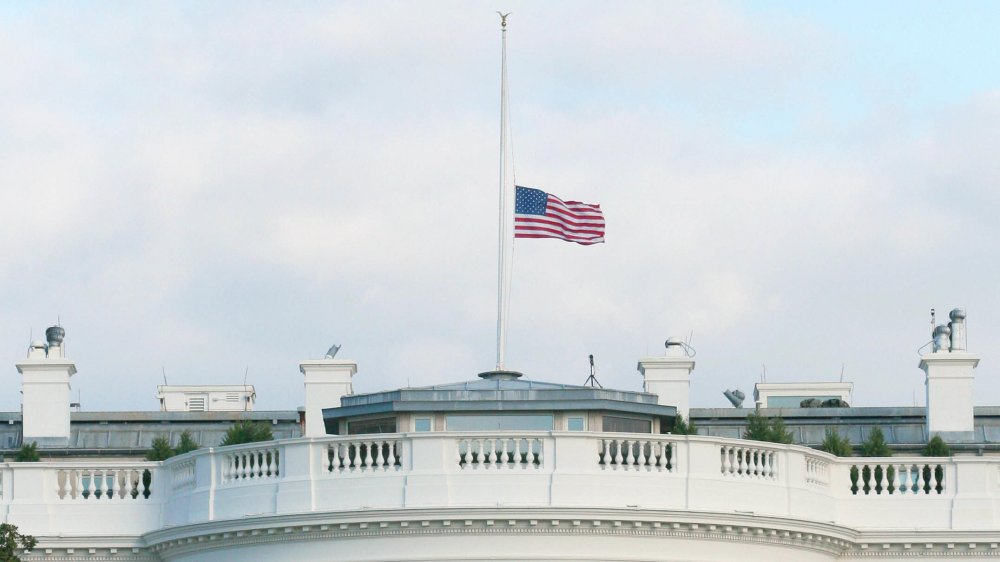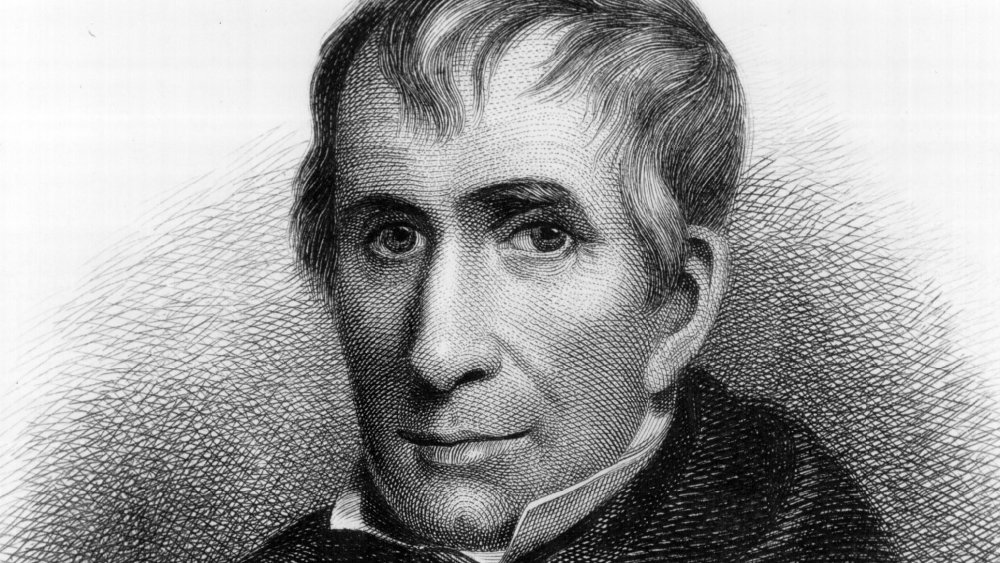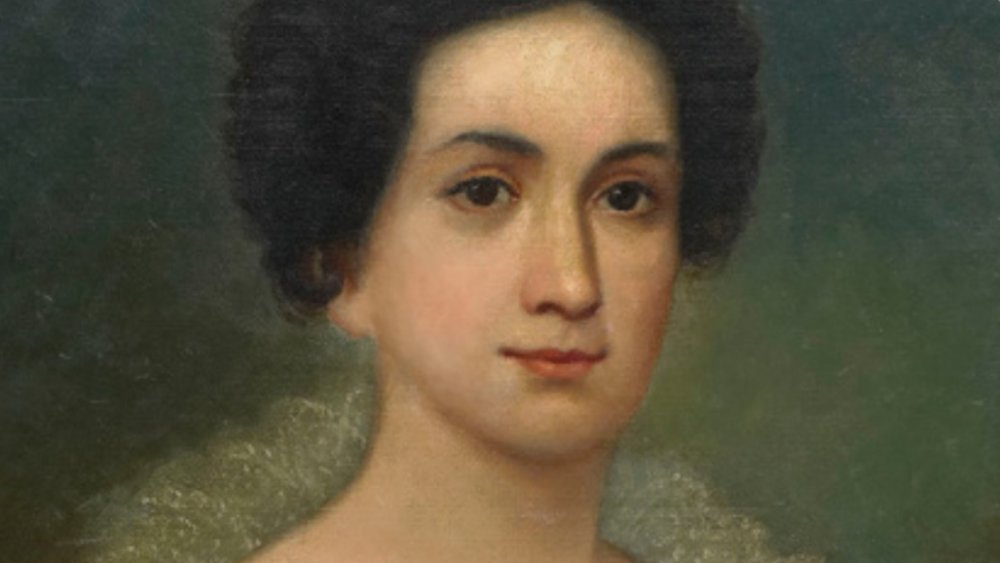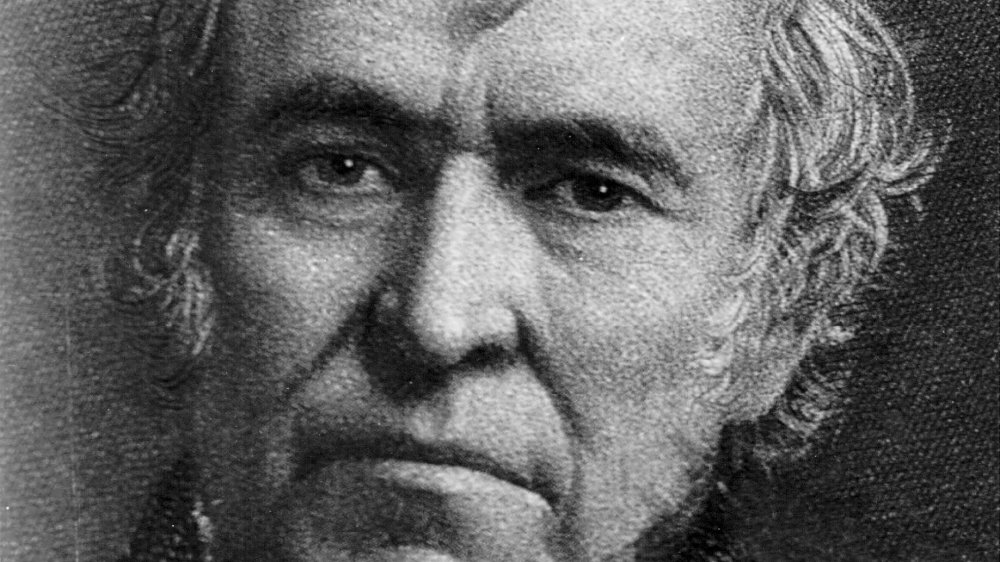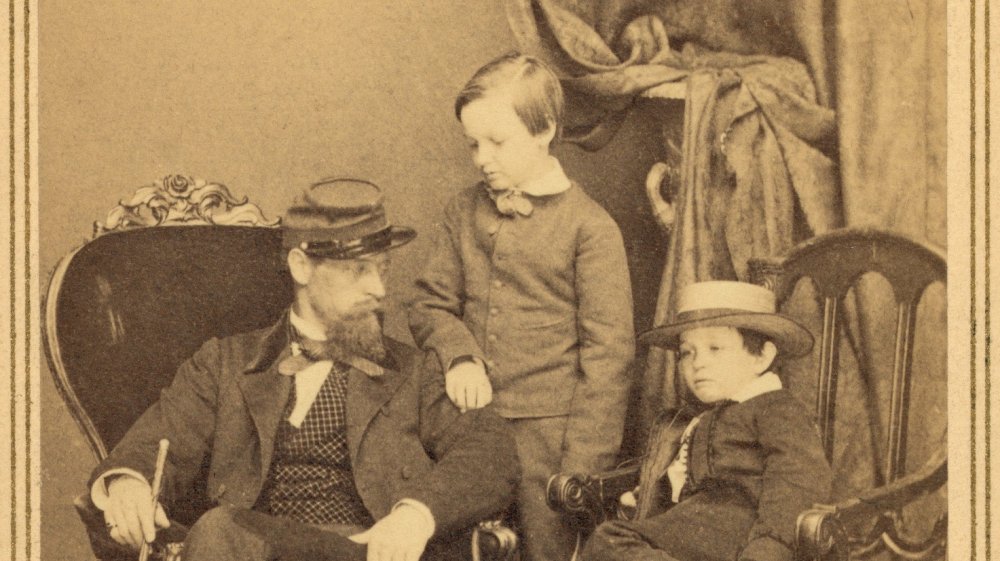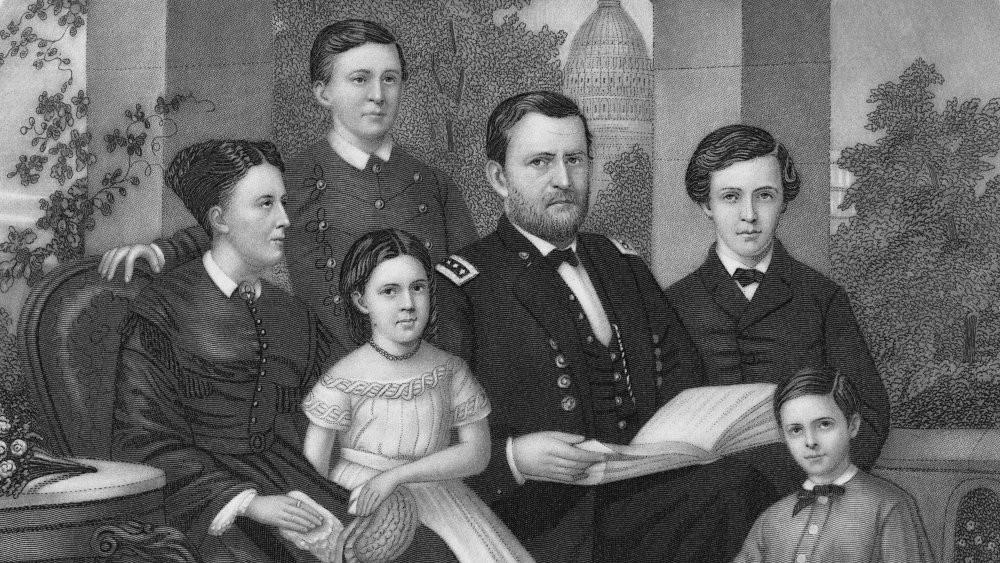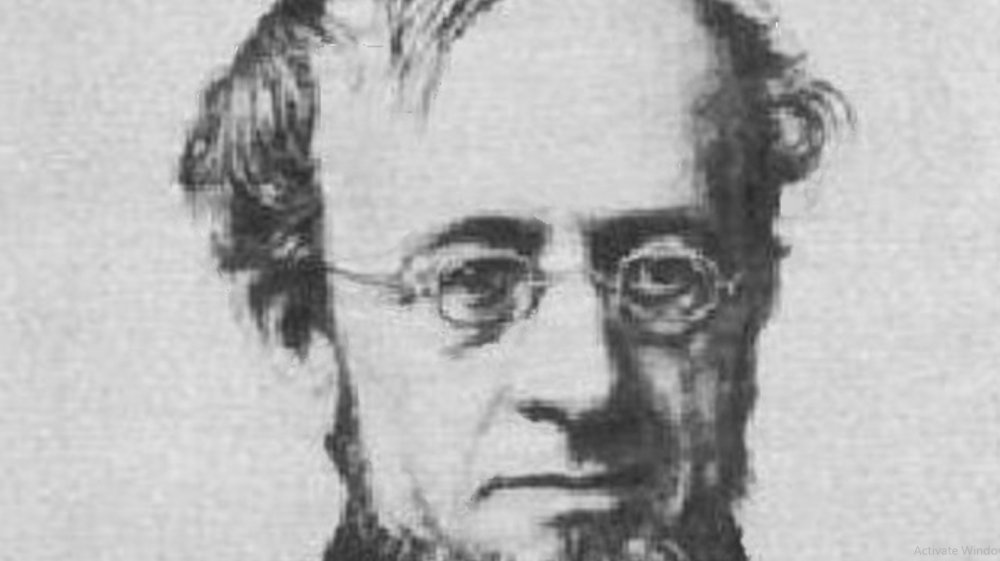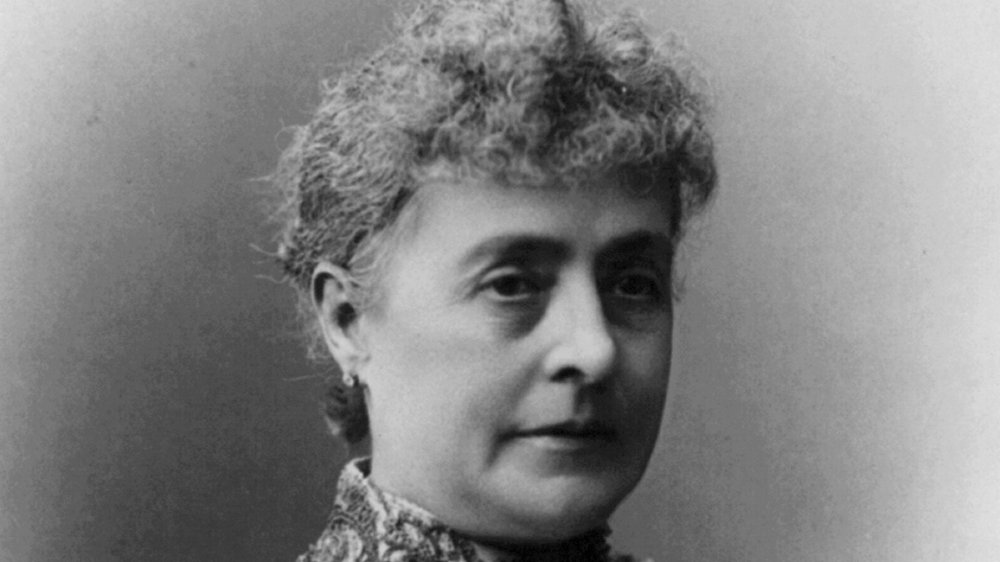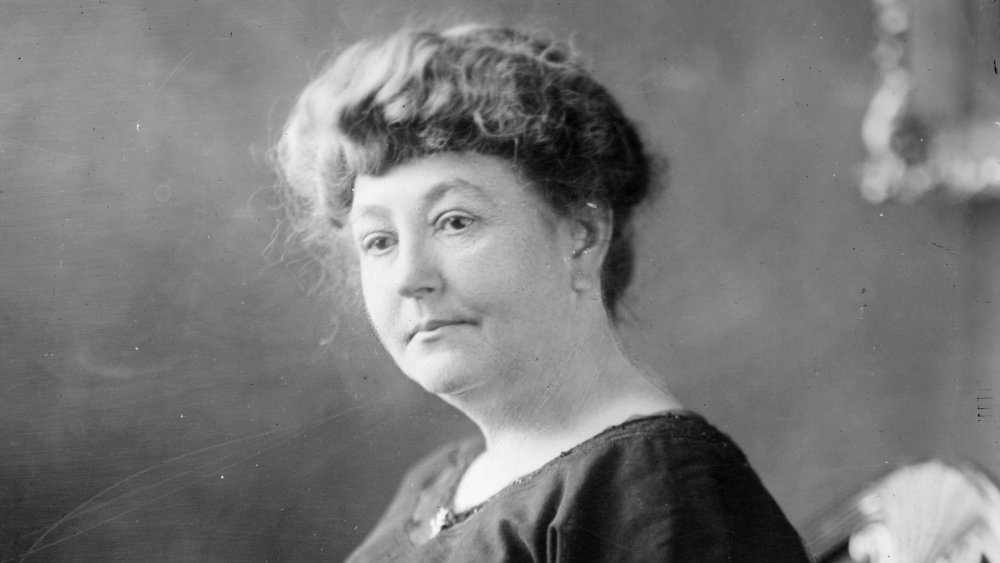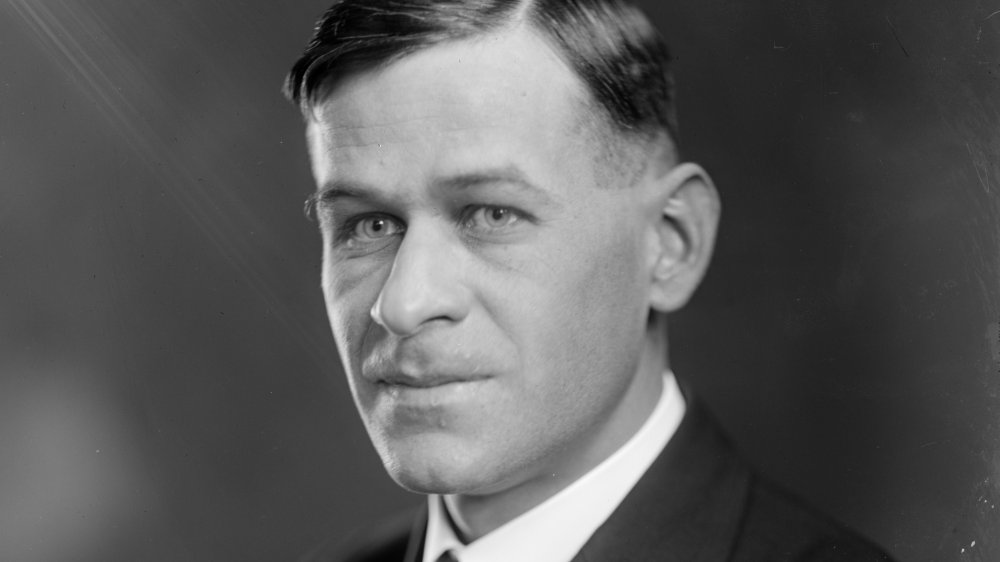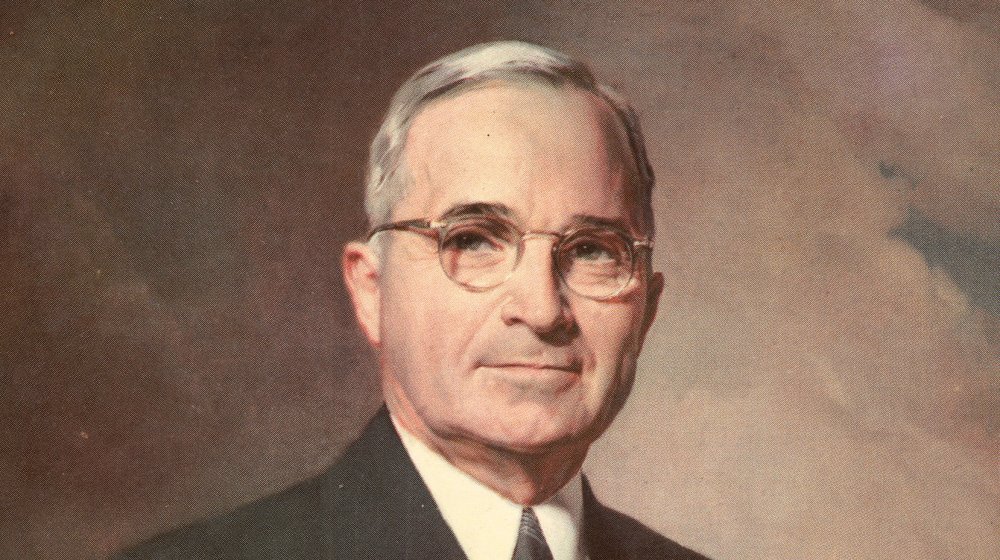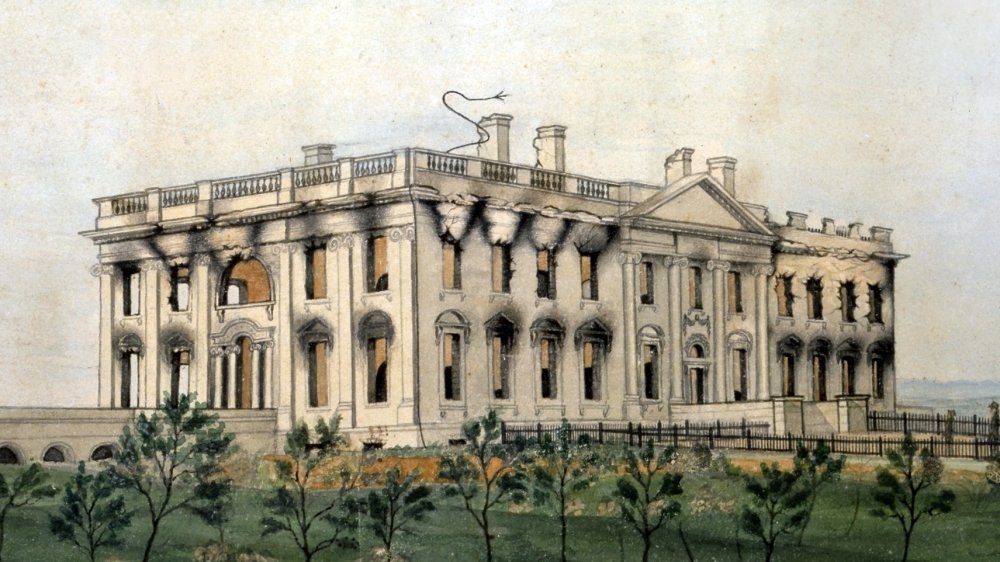Here's All The People Who Died In The White House
The White House, for all of the books, movies, documentaries, and maybe-just-a-skosh-condescending Aaron Sorkin shows about it, is a corner of American iconography steeped in mystery and intrigue. You'd be well within your rights to imagine that the home of the U.S. executive branch falls under the same magical urban legend umbrella as the Disney theme parks, where death is constantly held at bay by the forces of preparedness and unceasing optimism.
It's true that 1600 Pennsylvania Avenue has had a good run in recent years. However, America's turbulent adolescence combined with what was, up until recently, a very "poke it with your bare hands and see if it gets better" approach to medicine meant, for a while there, death could come creeping around the corner of the Oval Office at any time. Or it would have been able to, if ovals had corners.
This is a journey through the macabre history of people who punched out in the White House, how they died, and the consequences of their respective passings. Heads up: history spoilers ahead.
A coat wouldn't have saved President William Henry Harrison
Today, William Henry Harrison is most notable for two things. Firstly, if you ask your history major friends, "Is there anything interesting I should know about William Henry Harrison?" they'll just sort of laugh and go, "Nah." Secondly, he died, and he died quick.
Famously, Harrison enjoyed the shortest tenure in office of any United States president, making it only 32 days before kicking the proverbial bucket. Diagnosed with pneumonia three weeks into his presidency, Ol' Tippecanoe ended up bedridden for about a third of his term. History Net says White House doctors tried everything that medical science had to offer in 1841. They administered blood lettings, put suction cups on his chest, and poured ipecac down his gullet. Shockingly, none of this made Harrison feel any better, so they moved on to boiling petroleum and snakeweed and feeding that to him. It's a medical procedure that doctors today still use when they don't want to work as doctors anymore.
Alas, all of this was to no avail, and on April 4th, 1841, the country's ninth president passed away. The first president to die in office and the first recorded death within the walls of the White House, he lives on in the nation's heart thanks to the urban legend that he wouldn't have gotten sick if he'd just worn a coat in the cold, when in reality, Washington D.C. was sort of one big open sewer at the time and he probably died of typhoid.
First Lady Letitia Tyler suffered a stroke
It wouldn't be long before the White House saw another demise. After the death of William Henry Harrison, vice president John Tyler took a step up in the world, becoming the nation's new leader. Along for the ride was his wife, by all accounts a lovely woman, whose name was Letitia Tyler. The two seemed pretty happy together. Their correspondence during their courtship featured lines from John like "Whether I float or sink in the stream of fortune, you may be assured of this, that I shall never cease to love you," which is roughly the 19th century equivalent of "u up?"
At 49-years-old, Letitia suffered a stroke which left her paralyzed, and she wound up spending her time in the White House secluded in the upstairs living quarters, with only one recorded instance of a public appearance, making the trek downstairs to show up at her daughter's wedding in 1842.
Late that same year, Letitia passed away at age 51 due to another stroke. John Tyler would go on to marry a 23-year-old, and Letitia would get put on an Isle of Man postage stamp. So everybody won.
President Zachary Taylor partied too hard ... sort of
President Zachary Taylor came into office at an uneasy time for American politics. The debate over slavery was coming to a head, and the country, still less than a hundred years old, was becoming more unwieldy, with predecessor James K. Polk's annexation of Texas and incorporation of territories in the American southwest. Yes, Zachary Taylor had his work cut out for him. What he sadly did not have cut out for him were the gross looking parts of his apples.
Taylor had only been in office a little over a year when he attended a Fourth of July celebration at the still-under-construction Washington Monument in 1850. The festivities were straight up fire for the time. They had fruit. They had iced milk. That's just what hootenannies were like back then, apparently. There's a reason that Gatsby parties took off and Zachary Taylor milk and persimmons whoop-it-ups remain largely forgotten.
According to History, the big problem here, standards for what constitutes a good time notwithstanding, was that Washington D.C. still had a pretty severe sewage containment issue during that era, so eating open air dairy was a great way to get a bad case of cholera, which Taylor promptly did. He died inside the White House less than a week later.
Abraham Lincoln lost his son Willie to typhoid
Abraham Lincoln exists today as less of a man and more of a concept; more the ubiquitous face of ideological martyrdom than a human being. It can be easy to overlook the fact that he had a life outside of the events of the Civil War, the Gettysburg Address, and the evergreen punchline "but other than that, how'd you like the play?"
In 1862, Abraham and Mary Todd Lincoln experienced a living nightmare when two of their sons, Tad and Willie, became gravely ill, possibly with typhoid. While Tad would eventually recover, Willie died on February 20th, just shy of two months after his eleventh birthday.
This was the second child that the couple had lost, following the death of their 3-year-old, Edward Baker Lincoln, 12 years earlier. Mary would continue her hot streak of personal tragedies with the assassination of her husband in 1865 and the death of her youngest son, Tad, in 1871. Their remaining child, Robert, made it into adulthood, served as the 35th American Secretary of War, and, according to the Batavia Historical Society, he had his mother committed to the Bellevue Place sanitarium after a court decided she was behaving "irrationally." Some families just can't catch a break.
Frederick F. Dent, father-in-law to Ulysses S. Grant, loved slavery
Frederick F. Dent was one of those lucky so-and-so's that history will likely never bat an eyelash at, being more noteworthy for the kid he stuck in his wife than any of his actual accomplishments. Per the Missouri History Museum, he was a business owner and big fan of owning slaves. He did alright for himself as a merchant, owned a steamboat, and moved coffee and sugar shipments from Louisiana up the Mississippi river. That's about all there is to say about the guy. His obituary, as displayed on the Ulysses S. Grant National Historic Site Facebook page, is mostly just a list of people who showed up for his funeral. And again, he was just a huge fan of slavery. So whatever, screw him.
Dent did manage to pump out a couple of noteworthy children, with first place going to his daughter, Julia. Julia grew up to marry Ulysses S. Grant (who, fun fact, was actually named Hiram) and serve as First Lady to the United States. Rank having its privileges and nepotism having the same, Frederick was staying at the White House when he died in 1873. Next.
Elisha Hunt Allen, Minister of the Kingdom of Hawaii to the US, ruined a New Year's party
Everyone has that friend who came back from Hawaii a changed person. That friend had a great time in Hawaii. That friend can't believe you haven't been to Hawaii. That friend insists, simply insists, that you must go to Hawaii. And no matter how into Hawaii that friend might be, there's a zero percent chance that they liked it as much as Elisha Hunt Allen.
Elisha (which was a boy's name for a hot second) had all the prerequisites for falling in love with the Hawaiian islands. He was a lawyer, so he was doing alright for himself. More importantly, he spent a lot of time in Maine, so he probably missed the sun. Moving to what would eventually be the Aloha State, he advocated for American annexation and, according to The Church Historian's Press, worked a number of high profile jobs, culminating in his appointment as the Kingdom of Hawaii's Minister to the United States, an office he would hold for over 25 years.
During a New Year's celebration held by Chester A. Arthur at the White House on January 1st, 1883, Allen died suddenly at 78-years-old. He was buried in Cambridge, Massachusetts, which is sort of the Hawaii of the East Coast, right?
First Lady Caroline Harrison was replaced by her niece
Benjamin Harrison's presidency will be forever lauded as "much longer than his grandfather William's," and sits awkwardly as the historical Oreo cream filling to the Grover Cleveland's slabs of only-president-to-serve-two-nonconsecutive-terms cookie. His wife, First Lady Caroline Lavinia Harrison, was very big into White House renovations, history, and preservation, and, according to the National First Ladies' Library, would help to create the National Society of the Daughters of the American Revolution, an organization comprised of female descendants of the United States' founders. She also, without fail, always looked like she was having a blast when getting her picture taken.
Caroline worked as a music teacher for most of her life, and suffered from what were some pretty serious health issues at the time. These included a bad case of pneumonia and, in 1892, tuberculosis. TB was incurable back then, and the best a doctor could tell a patient was to get plenty of rest and go live someplace dry, which would, in theory, help the patient's lungs. Caroline traveled to the Adirondacks, but against all odds, the act of existing near a mountain didn't manage to kill the bacteria inside her, and she returned to the White House where she passed away on October 25th, 1892.
Bonus fact: Four years later, Benjamin Harrison married Caroline's niece, who was a quarter of a century younger than him.
First Lady Ellen Wilson probably wasn't murdered
Intrigue! Drama! Unsubstantiated rumors of uxoricide! Prepare yourself for the story of the death of First Lady Ellen Wilson, wife to acclaimed party animal Woodrow Wilson and, from the information available on her, fairly decent person, putting aside for a moment the fact that she traveled south for her pregnancies so that her children wouldn't be born as yankees, according to the National First Ladies' Library. Look, history is a mixed bag. She was born into a Southern family of slave owners, then spent a good chunk of her time as First Lady trying to renovate largely African American slums in Washington D.C., making sure that the affluent and powerful didn't turn a blind eye.
Ellen also suffered from severe kidney disease and, in 1914, died on White House grounds. Here's where things get scandalous: seven months later, President Woodrow Wilson was introduced to a woman named Edith Galt. Edith, recently widowed, and Woodrow, now the most eligible bachelor in the executive branch of government, got on like a house on fire. Wilson proposed pretty close to immediately, leading to a whole lot of hot goss getting passed around the capital, including a rumor that Galt and the President had conspired to murder Ellen Wilson. Was any of it real? Almost definitely not. But man, how much fun it must have been to humiliate two people trying to move past the deaths of their loved ones by continuing to have lives of their own!
White House Press Secretary Charles Ross died on the job
What is there to say about the position of White House Press Secretary that White House Press Secretaries haven't already said, then walked back, then reworded, then denied ever having said in the first place?
Harry Truman's press secretary had the unenviable job of explaining to the country just exactly how a post-nuclear America was planning to get its ducks in a row. When it came time to appoint somebody, Truman landed on his friend the Pulitzer Prize-winning journalist Charlie Ross. In 1945, Ross took over for Jonathan W. Daniels, the last FDR appointee to the position, who only worked the job for a month and a half. Ross, on the other hand, would stay at his post until the moment he died.
On December 5th, 1950, Charles Ross was sitting at his desk, prepping comments for the TV news when he suffered a severe coronary occlusion, or blockage of the blood through the heart. According to the Washington Post, he died right then and there.
Harry Truman's mother-in-law Margaret Wallace was not a nice person
Everybody has, at some point, probably had at least a sneaking suspicion that their in-laws aren't their biggest fans. Maybe it's out of a sense of self loathing, or, who knows? Maybe your spouse's parents really do think you're a sack of wet trash. In either case, there's not much of a chance that they think less of you than Margaret Wallace thought of her son-in-law. And he was the President of the United States.
Margaret "Madge" Wallace, mother of First Lady Bess Truman, was not a Truman fan, which must have made it a treat for everybody when her daughter insisted that she be cared for in her old age at the White House. It was there that Madge passed away on December 5th, 1952. To date, she holds the distinction of being the last known person to die inside of 1600 Pennsylvania Avenue.
Before you get too sad, remember that after his presidency, Truman, then living at the Wallace family property, explained to a visiting journalist that he couldn't come into the house because (as quoted by the National First Ladies Library) "You're a Jew, David, and no Jew has ever been in the house. David, this is not the White House – it's the Wallace house. Bess runs it, and there's never been a Jew inside the house in her or her mother's lifetime." So yeah, maybe don't worry too much about mourning an anti-Semite.
Weirdly, nobody during the War of 1812
Two hundred years and change later, the War of 1812 is kind of a blind spot in most Americans' historical rearview mirror. Here's a bare bones primer: Great Britain was at war with France, and France was at war with Great Britain, and neither one wanted anybody trading with the other. This didn't tickle the United States government, who also had a pebble in their shoe about the British navy's habit of forcibly conscripting sailors on passing merchant ships into service. "Capturing people, putting them on boats, and forcing them to do things that they don't want to do?" white Americans probably said. "Who would do such a thing?"
In any case, the U.S. wound up at war with Britain, and in retribution for America's burning of a British port in Canada, British troops marched on Washington and set a whole mess of things on fire. In their defense, it was 1814 by this point, and everybody was probably pretty tired of fighting in something called "the War of 1812" two years past its sell by date. The big win for the British was the torching of the White House.
Here's the wild thing: nobody died in the fire. According to the Smithsonian, the staff of the White House had a good heads up and managed to clear out, and the British, in a very British move, were under strict orders not to kill any civilians. The only recorded death during the attack went to the great-grandnephew of George Washington, who got a little bit wasted and rode at the British troops, swinging a sword and shouting no-no words before getting very, very shot, which is, historically speaking, how using a sword has tended to go ever since.
